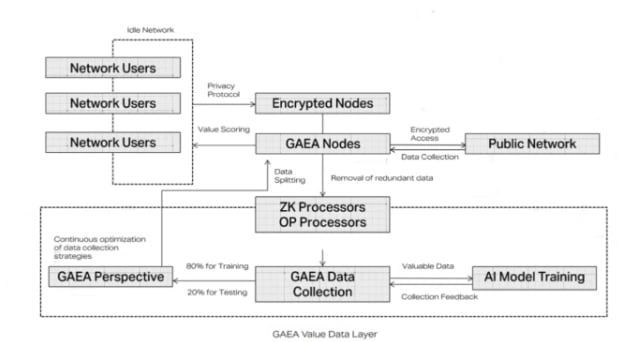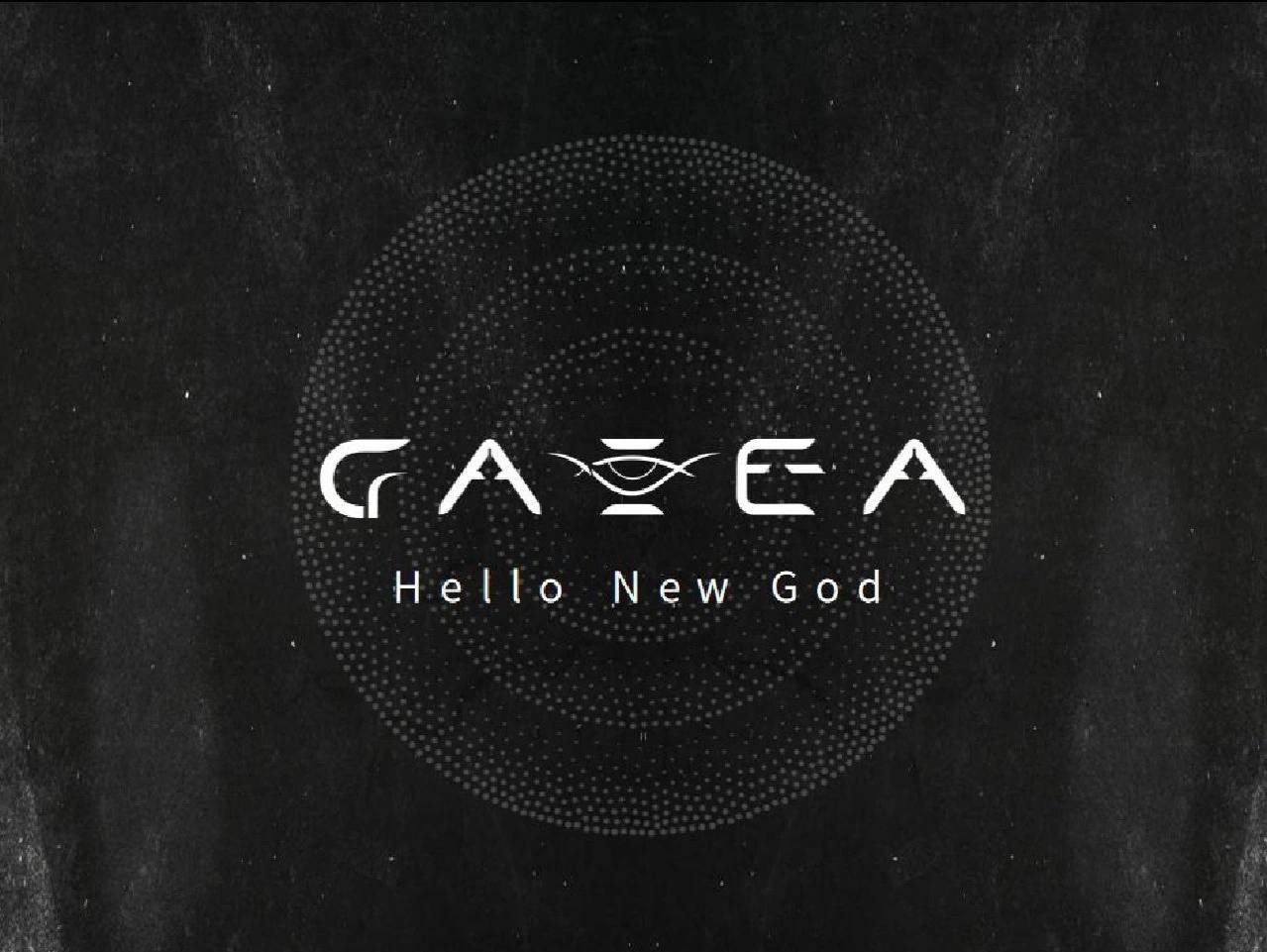订阅 wiki
Share wiki
Bookmark
GAEA
0%
GAEA
GAEA 是一个建立在 以太坊 上的 Layer 3 公共 区块链,旨在通过利用未充分利用的网络资源来支持去中心化人工智能 (AI) 的开发。作为一个社区驱动的 DePIN(去中心化物理基础设施网络),GAEA 促进了公共网络数据向 AI 训练数据集的转换。 [2] [3]

概述
GAEA 在去中心化人工智能领域运营,构建了一个平台,将拥有未使用的网络资源的个人与需要这些资源进行 AI 开发的组织联系起来。该项目利用 智能合约 来自动化用户贡献的奖励分配等流程。
以太坊内部的持续发展,包括通过以太坊 2.0 提高可扩展性,进一步支持了 GAEA 更广泛的应用和增长潜力。它是一个社区驱动的 DePIN 网络,通过用户友好的平台提供数据注释、模型训练和 AI 部署工具。它允许个人通过共享未使用的网络资源来换取基于积分系统的奖励,从而为 AI 开发过程做出贡献,而无需技术背景。
GAEA 强调整合情感数据和用户生成的内容,以提高 AI 系统的情境理解能力。该平台建立在 区块链 技术之上,支持透明的数据共享和处理,旨在构建一个价值数据层,通过激励参与来提高 AI 训练的有效性。[1] [3] [2] [6]
硅神话
GAEA 提出了“硅神话”作为一个概念框架,其中数据被视为通过人类互动和活动产生的生命形式,存在于一个平行的数字维度中。在这种视角下,人类和数据之间建立了一种共生关系——人类创建和管理数据,而数据反过来又推动了技术和社会进步。
该平台在神话创造和去中心化数字景观的出现之间建立了象征性的平行关系,表明 Web3 时代的人们充当了基于硅的世界中的创造者。[4]
用例
GAEA 的去中心化网络资源的主要应用包括:
- 数据抓取:组织可以使用不同的 IP 地址从各种来源收集公共数据,而不会面临基于 IP 的限制
- AI 训练:机器学习模型需要大量的多样化数据,可以使用分布式网络资源更有效地收集这些数据
- 分布式计算:该网络可能支持除带宽共享之外的其他形式的分布式计算
- 开源 AI 开发:通过使网络资源更易于访问,GAEA 专门旨在支持开源 AI 计划,否则这些计划可能缺乏大规模开发的基础设施 [1]
价值数据层

GAEA 的价值数据层是其去中心化 AI 基础设施的核心组成部分,旨在提高人工智能训练中使用的数据集的质量和效率。它侧重于通过分布式网络模型优化数据收集、过滤和细化。
- 数据收集:GAEA 利用用户的闲置带宽和计算能力来访问公共网络并收集多样化的数据集,包括文本、图像和视频。参与者运行 GAEA 节点,为去中心化数据聚合做出贡献。
- 过滤和拆分:收集的数据使用零知识 (ZK) 处理器进行初始处理,以删除冗余或不相关的内容。然后,操作处理器将过滤后的数据分割成可管理的部分,以进行分布式训练。
- 优化和反馈:涉及 AI 模型性能的持续反馈循环为数据细化策略提供信息。GAEA 节点调整数据收集方法以符合模型要求,确保相关性并提高数据集质量。
- 层构建:价值数据层是通过数据采集、技术筛选和迭代反馈的组合过程构建的。该系统支持适用于不断发展的 AI 用例的动态数据集生成。
- 市场相关性:随着全球 AI 和数据管理市场预计将显着增长,GAEA 的基础设施旨在贡献可扩展和优化的数据处理服务,以满足不断增长的行业需求。 [5]
发现错误了吗?
